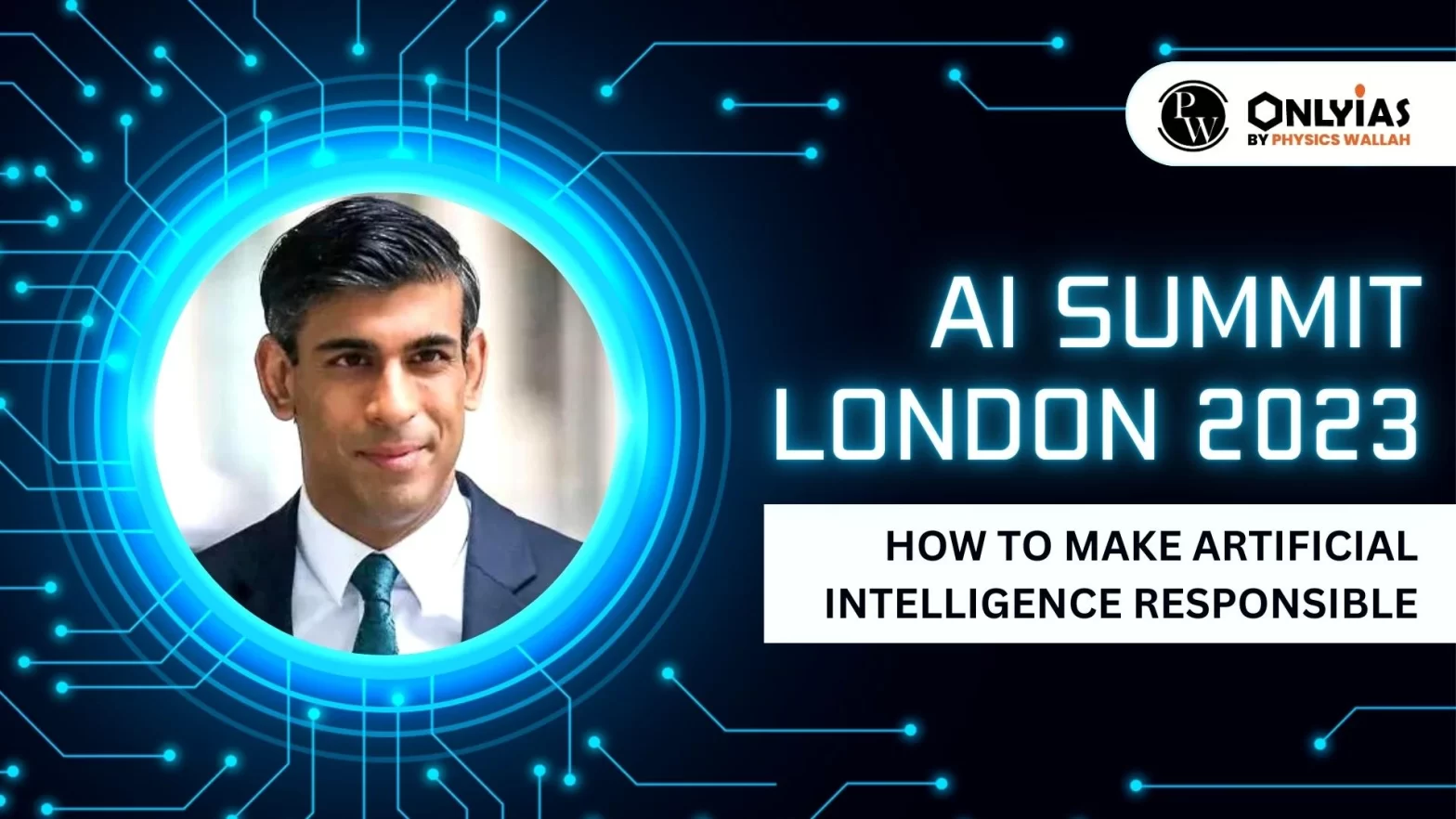Context:
- This article is based on an Editorial “C Raja Mohan writes: AI Summit London and how to make AI responsible” Which was published in the Indian Express. The two-day AI summit London 2023 on the safe use of Artificial Intelligence (AI) is being hosted by the UK for discussing the risks and opportunities posed by AI.
- The AI Summit London 2023 was convened by the British Prime Minister at Bletchley Park outside London. Early research on AI was pioneered at Bletchley Park” by Alan Turing, considered as the Father of AI.
| Relevancy for Prelims: AI Summit London 2023, and Artificial Intelligence.
Relevancy for Mains: Global AI Governance, Associated concerns, India’s taken steps in the desired direction and further measures that need to be taken. |
AI Summit London 2023 – Key Highlights
- Discussion on the establishment of:
- International register of frontier AI models that will allow governments to assess the risks involved with AI.
- AI Safety Research Institute will examine, evaluate and test new types to understand what each new model is capable of and its risks. .
- AI Summit London 2023 marks an important first step towards the global governance of AI that offers unprecedented danger to human rights.
Know more about the Global AI Summit London 2023
What is Artificial Intelligence?
- It is a machine-based system that can, for a given set of human-defined objectives, make predictions, recommendations, or decisions influencing real or virtual environments.
Why is Global AI Governance needed?
- Lack of Global Regulation: Data scraping lacks a uniform global regulation.
- AI Big Three Dominance: China, EU, and US influence the global AI and data-driven economy.
- Social Disparities: AI expertise concentration can worsen global inequalities and digital divides.
- Cyber Crime Risks: AI-related risks include online harassment, abuse, and threats to safety.
- Curb of Individual Rights: The risks to freedom of expression, excessive content blocking and restriction and opaque dissemination of information.
- For example, DeepMind, Google’s AI unit, is alleged to violate UK data protection laws and patient privacy rules during the development and testing of an app for the NHS (National Health Services).
Also Read: Empowering Legislation: Harnessing Artificial Intelligence for Better Governance
India’s Progress Towards Regulating Artificial Intelligence – Steps Taken By the Government
- National Strategy for Artificial Intelligence: NITI Aayog issued it in 2018 which had a chapter dedicated to responsible AI.
- In 2021, NITI Aayog also issued a paper, ‘Principle of Responsible AI’.
- Global Framework on Expansion of “Ethical” AI: It was emphasized by India during the B20 meeting. This implies establishment of a regulatory body to oversee the responsible use of AI, akin to international bodies for nuclear non-proliferation.
- G20 Meeting: In the recently concluded meeting, India suggested international collaboration to come out with a framework for responsible human-centric AI.
- Sector-Specific Frameworks: In June 2023, the Indian Council of Medical Research had issued ethical guidelines for AI in biomedical research and healthcare.
Way Forward
- Uniform Global Regulation: All countries need to build a set of harmonized regulations that govern all Generative AI models and their data crawlers/scrapers.
- Establishment of a Global AI Knowledge Hub: There should be a centralized platform for sharing best practices, research findings, and policy recommendations on AI governance.
- It would address ethical issues and involve experts and citizens into governance mechanisms, thereby benefiting countries of both the Global North and Global South.
- Support for International Technical Standards: Technical standards function as a baseline to gauge a product’s features and performance.
- These technical standards enable a common platform for risk assessments and audits, allowing countries with varying regulations to mutually assess and evaluate AI systems or services.
Conclusion:
The AI Summit London 2023 highlights the imperative for global AI governance in the field of Artificial Intelligence, prompting nations to collaboratively establish regulations, ethical frameworks, and knowledge-sharing mechanisms for responsible AI development.
![]() 2 Nov 2023
2 Nov 2023
